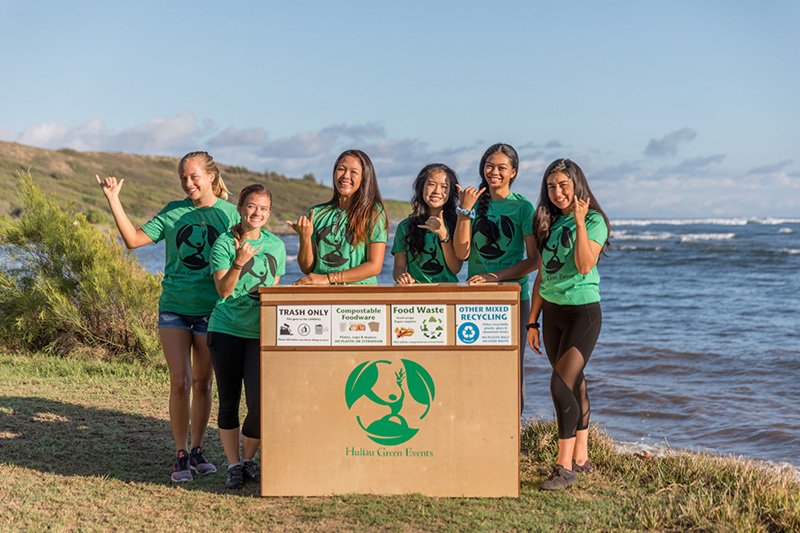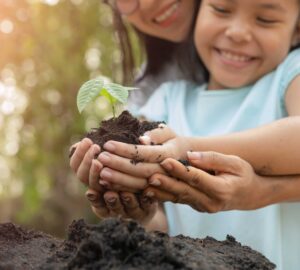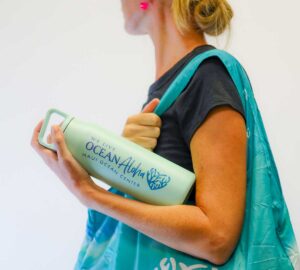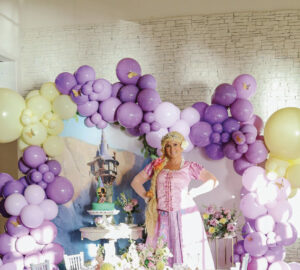
It’s no secret that Maui is an island with limited space for waste removal and a fragile ecosystem. Yet, everyday families get together for gatherings large and small with little thought to the waste that gets left behind. Or for some of us, we unknowingly use materials that are falsely marketed as “good for the planet.”
The Huliau Green Event program works to reduce and divert landfill waste through public education, reuse, composting, and recycling. You can use their practices for your own gatherings. We asked Malia Cahill, Executive Director of Maui Huliau Foundation, for tips on how to green your next celebration.
- One thing to emphasize is that reuse is nearly always best, so I always tell people to at least use real metal utensils if possible, as those are easy to wash.
- Reducing plastic use whenever possible is also important. The only plastics recyclable in Maui County are #1 and #2 (look for the “resin codes” on the bottom of plastic items) with necks, so there are no plastic utensils or cups that can be recycled.
- Plastic water bottles should be avoided. Why? Even though they are recyclable, plastic recycling is very energy-intensive, expensive, and often leads to pollution in Asian countries where we ship our recycling. Using beverages in cans or glass bottles, or having a water cooler to refill glasses are all better options.
- Avoid “greenwashing” products that are pretending to be eco-friendly. Look for “BPI certified” or at least the word “compostable”. Many products labeled as “biodegradable” and “eco-friendly” are actually greenwashing products containing plastic.
- Purchasing plain paper plates is a good option if using reusable plates is not possible. Unfortunately, those cute glossy designs on paper plates usually indicate a plastic coating, but basic paper plates without lining are compostable. While paper plates can take a long time to break down in backyard compost piles, they are not made from petroleum and will not have the same harmful effects if they end up in the environment or the ocean.
- Certified compostable PLA bio-plastics which utensils and clear cups are typically made from are better than plastics as they are not made of petroleum and donʻt have the same harmful chemicals in them. However, they can only be commercially composted, so using certified compostable paper cups or bamboo/wooden utensils is usually a better option.
- Another tip to reduce waste at your next gathering is to use reusable party decorations and to avoid plastic confetti, disposable table cloths, and plastic party favors that are likely to be thrown away.
These are just a few of the simple ways to shift the throwaway culture to one that respects the ʻāina. For a detailed resource list of products and guidelines to help plan your next event, visit mauihuliaufoundation.org/greenevents.



